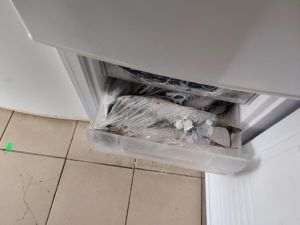One of the important ministries in any government, if not the most difficult to manage, is the Minis-try of Economy. And when it includes entrepreneurship, but also the field of tourism, the problems faced by any politician who becomes Minister of Economy double or even triple, taking into ac-count the complexity of the portfolio he has to manage. The plans of the new Minister of Economy, Entrepreneurship and Tourism, Claudiu Năsui, are quite ambitious, but difficult to put into practice, if we take into account the period we are going through and which is marked by the pandemic, but also the fact that most of the state companies subordinated to the ministry are insolvent or bank-rupt. In order to find out the situation that the new Minister of Economy, Claudiu Năsui, is facing this year, we conducted, in late January, a short interview with him.
Reporter: The government program talks about developing a national strategy for the capital mar-ket. That strategy aims to increase the participation of companies and investors in the market. In your opinion, what would be the first three priorities that the government should have in this regard?
Claudiu Năsui: The government, in its entirety, through the government program as well, also aims to solve the problem of black holes in the budget, and the long-standing problem of the leeching of state-owned companies, and in this sense, listing on the capital market, on the stock exchange, is a solution. We already have companies that have listed minority packages, in which the minority shareholder, especially Fondul Proprietatea, which managed to be an activist shareholder and put the spotlight on many things in companies, prevented corruption cases, sanctioned them and brought more transparency and good practices in those companies. Our strategy is given by this line of de-leeching, transparency of operation and attracting new investments in Romanian compa-nies.
Reporter: The listing of state-owned companies, led by Hidroelectrica, which is seen by a large part of the capital market community as the key to getting promoted to the emerging markets league, is one of the aspects highlighted in the government program. It is mentioned in the current govern-ment program, as it is in the previous ones, but they did not see it through. Can you give us more details about this government goal? What are the chances of it happening?
Claudiu Năsui: I give it great odds. Hidroeletrica is now under the oversight and coordination of the Ministry of Energy, a domain separated from the economy in the current government, and I think it is a thing that Romania should do (ed. note: - the listing of the company on the stock market) both for the company's welfare, as well as for Romania in general, and in the end for the welfare of Ro-manians.
Reporter: Will you determine them to do that?
Claudiu Năsui: The government is determined to go through with that IPO.
Reporter: What measures do you intend to take to boost the listing of private companies on the Bucharest Stock Exchange?
Claudiu Năsui: It is a whole package of measures through which we intend to simplify the activity of companies in general. It is about SMEs, but also about larger companies, which have the potential to be listed. We will take active debureaucratization measures that this ministry has never focused on before, unfortunately. It is an element of novelty, we are trying to do that, we will have a Secre-tary of State dedicated to the issue of debureaucratization precisely to remove all these barriers that have been placed over time on business, enterprises, companies, including in terms of listing and all the cumbersome tax procedures, often for investors. Here we have to look at both sides: both on the listing side, but also on the investor side, not to have bureaucratic obstacles in buying shares on the stock exchange.
• Listing state owned companies on the stock market - the solution to save them
Reporter: From that point of view, are there investment projects you are looking to start, which could be financed using the stock market mechanisms? If yes, please provide examples.
Claudiu Năsui: There are no specific projects at the moment, but it is the general framework. In the Ministry of Economy - as it exists now - we have 42 companies, of which I believe 31 are insolvent or bankrupt. I am referring to state-owned companies and their merged subsidiaries. It is not a very rosy situation, but for those who are not in major difficulties, it is a solution for them as well (ed. note - listing on the stock exchange) and then we should open them to the capital market, both to make them transparent as well as to attract investment.
Reporter: What tax facilities are you going to implement for investors or companies in order to de-velop the capital market?
Claudiu Năsui: Here is where we have that whole talk about taxing stock market earnings. It's a theme that has something more to do with Finance Minister, Nazare. What we are proposing is to debureaucratize the process for the making of those payments, in the sense that an investor, a natural person, does not have to worry about paying taxes or adding amounts, the single statement or other things like that, which would it could be an additional deterrent to investing, knowing that they have to go through an annual bureaucracy, ask for documents, putting in numbers and all that.
Reporter: How do you see the reorganization of the Târgovişte Special Steel Plant, one of the two major local reinforced concrete producers, in the context in which Romania imports 100% of the much-needed reinforced concrete so needed for the constructions in our country?
Claudiu Năsui: I found out about the situation of COS Târgovişte, when I became a minister. It is a special one, in which we tried to help by finding investors. We also put out feelers to see who might be interested and we hope to find more investors who are interested in taking over from there eve-rything that is possible as well as continue the operation.
• Claudiu Năsui: "I don't agree with the idea that civil servants should decide who gets money and who doesn't"
Reporter: What is the situation concerning the implementation of the measures to support SMEs? Are there still payments left to make for the measure 1 stipulated in EGO 130/2020 amended through EGO 174/2020?
Claudiu Năsui: I think that at present there are less than 300 payments to be made for measure 1, which is almost completely finished. I can give you some information for the first time: we are seri-ously considering reopening measure 1 to include NACE codes that were not initially included, also because we have money left and thus we are using it to reopen this measure. It is something that we are analyzing and we will probably come out soon with the message that we are reopening, if possible, provided the other ministries involved in this process allow it.
Reporter: You talked, in the beginning of the year, about a deadlock on measure 2 - supporting working capital, generated by the slow pace of analysis of the business plans. Florin Jianu, the president of the National Council of Small and Medium Private Enterprises in Romania, claims that the ministry's officials are not analyzing the business plans and that the deadlock is caused by an-other factor. What is the reality?
Claudiu Năsui: I have said that I do not agree with state aid schemes, in general, in which civil servants analyze business plans. That was not the intended use of measure 2. In this case, it was another type of deadlock, but we managed to bring more people in those departments, with the support of the STS (ed. note: Special Telecommunications Service) we managed to automate the process, we changed several things internally and we managed to increase the pace from 90 ap-proved applications per day to 660 processed per day. But conceptually, I do not agree with the idea that civil servants should decide who receives money and who does not. These things should happen in a market setting. That is why I am in favor - and it is also included in the government program - of using this money for guarantee schemes, for financial instruments, through which to subsidize interest, to subsidize a part of the repayment of the principal and other similar things. I don't think the idea of doing 100% entrepreneurship with state money is beneficial.
Reporter: How many companies have applied for measure 2 - working capital support - and how many have already received the the payment they have applied for?
Claudiu Năsui: We have about 18,000 applications and almost 5,000 companies that have received the money. We now have a deadlock on payments because, as we do not yet have a budget for 2021, we can only make payments within 1/12 of the previous year's budget allocation per month. That's why, for now, we do more processing, evaluation and, when the budget comes in, we can finish with the payments.
Reporter: What is the status of the implementation of measure 3 - support for investments?
Claudiu Năsui: We have a lot of projects submitted, I think over 20,000, a lot of them having come in at the last minute (ed. note - before the deadline for submission, which was Friday, January 29, 2021), because the criterion used is not "first come, first served", but the score.
• The Minister of the Economy wants budgets without financial losses in 2021 for state-owned companies
Reporter: Prime Minister Florin Cîţu asked each minister to present by February 4 memoranda on the financial situation of state-owned companies in the portfolio of each ministry and methods for recovering troubled companies. How many companies of this type do you have in your portfolio and which of them face the biggest financial problems?
Claudiu Năsui: At the Ministry of Economy there is the largest number of companies with problems. Somehow, I think that is the specificity of the Ministry of Economy at this moment. There are 31 companies that are insolvent or bankrupt, or have various problems, out of a total of 42 companies. The prime minister's request is underway. I asked to have zero revenue and expenditure budget plans, that is, to see exactly how we could reduce those losses and not perpetuate black holes. Our more general plan for these companies - and I think that matters the most - is to find investors and solutions for each of them, to get rid of them and make their business transparent.
Reporter: How will you manage the current situation in the national defense industry? The unions have sent you a letter stating that there is an urgent need for funding for this important branch of the national industry. Are you a supporter of the policy of concluding contracts between governments for the acquisition of military equipment or will you ensure the application of the legal provisions that mke offset mandatory for the modernization of the national defense industry?
Claudiu Năsui: I think offsets are an important part of the solution. And I think foreign investment is a very important thing. We must be attractive for this defense area as well, and for that, the Ministry of National Defense, when concluding contracts, should also include investment clauses, which are very important in our country. I support exactly the operationalization of this offset that exists in theory, but which often did not materialize.
Reporter: Last autumn, the Court of Auditors published a report showing many irregularities in the work of the National Consumer Protection Authority (ANPC). What measures will you take to rem-edy the deficiencies found?
Claudiu Năsui: I am still in the beginning of my term, but I have requested the reports of the Court of Auditors for my own apparatus, as well as for the Ministry of Economy, and for the subordinate institutions. The ANPC is a subordinate institution. Let's see all the irregularities, let's see what the ANPC's plan proposal is and let's hurry things up over there. So far, however, I do not have the full team of state secretaries and other positions that should be filled in order to have a 100% opera-tional team. As soon as I have it, we will take care of that as well.
Reporter: Thank you!























































